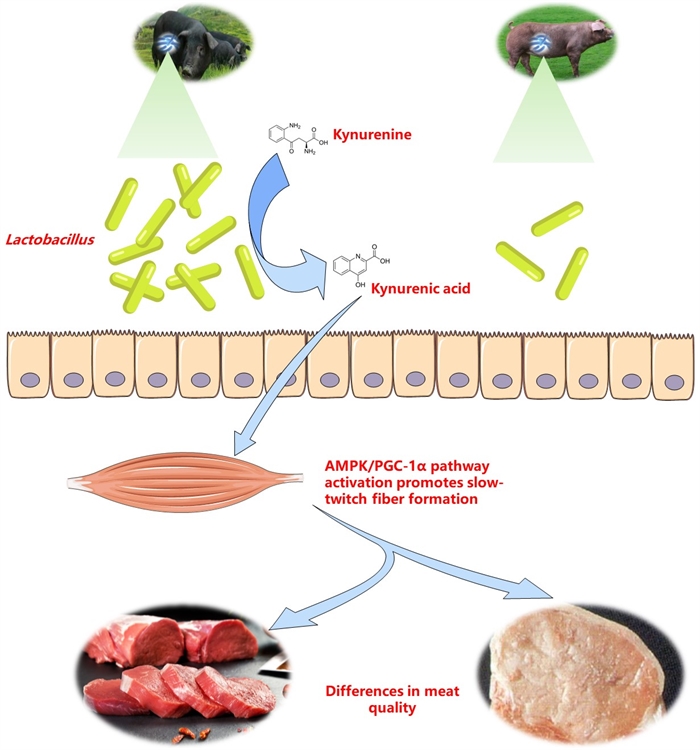Gut Microbiota Contributes to Better Pork Quality
Recently, a research team led by Prof. Kong Xiangfeng from the Institute of Subtropical Agriculture, Chinese Academy of Sciences, has revealed that modulating gut microbiota offers an approach to improve commercial pork quality—potentially bridging the gap between the high meat yield of commercial pigs and the premium meat quality of Chinese indigenous pigs.
Based on two recent studies comparing the pork quality of Chinese indigenous with commercial pig breeds, scientists have uncovered how gut microbiota shape superior meat quality through the gut-muscle axis. The research findings reveal that Chinese indigenous pig breeds like Taoyuan black (TB) pigs and Xiangcun black (TB) pigs developed more endurance-type muscle fibers, key factors of muscle tenderness and flavor, due to their distinct gut microbiota composition. These research results have been published in Food & Function (2023) and npj Biofilms and Microbiomes (2025).
The finding discovered Lactobacillus bacteria in the colon as one of the potential regulators. Lactobacillus in the colon convert dietary tryptophan into kynurenic acid, (gut bacteria-derived metabolite which activates the AMPK/PGC-1α signaling pathway in muscle tissue. This cascade essentially reprograms muscle fibers toward the slow-twitch type enhancing meat quality traits like such as water-holding capacity and intramuscular fat content. Notably, fecal microbiota transplantation from Chinese indigenous pigs transferred these traits to mice, proving the evidence that gut microbiota directly influences muscle biology.
Contact: Xiangfeng Kong
E-mail: nnkxf@isa.ac.cn

Graphical Abstract (Image by Song Bo)
Download attachments: